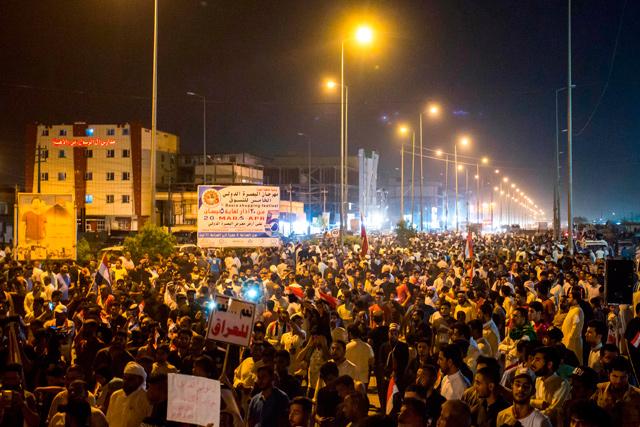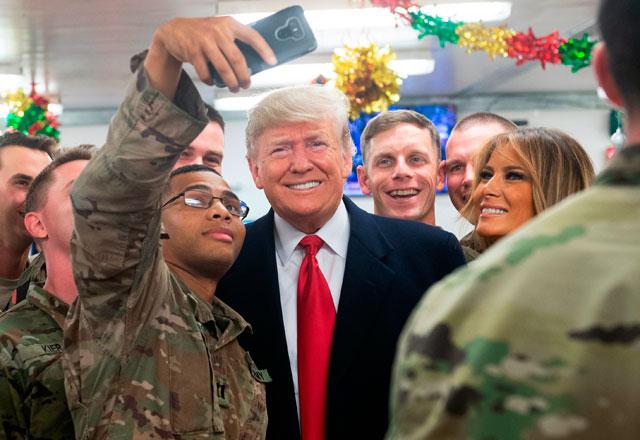You are here
Israeli spy sees possible threat from Iraq as Iran’s clout grows
By Reuters - Dec 31,2018 - Last updated at Dec 31,2018
TEL AVIV — Iran could use its growing clout in Iraq to turn the Arab country into a springboard for attacks against Israel, the top Israeli intelligence official said on Monday.
Israel sees the spread of Tehran's influence in the region as a growing threat, and has carried out scores of air strikes in civil war-torn Syria against suspected military deployments and arms deliveries by Iranian forces supporting Damascus.
Iraq, which does not share a border with Israel, is technically its enemy, but was last an open threat in the 1991 Gulf war. After a US-led invasion in 2003 toppled Iraqi dictator Saddam Hussein, a Sunni Muslim, Israel has worried that the country's Shiite majority could tilt to Tehran.
‘‘Iraq is under growing influence of the [covert Iranian foreign operations unit] Qods Force and Iran,’’ Major-General Tamir Hayman, the chief of Israeli military intelligence chief, told a conference in Tel Aviv.
With US President Donald Trump signalling he sought to disengage from the region, Hayman said, the Iranians may ‘‘see Iraq as a convenient theatre for entrenchment, similar to what they did in Syria, and to use it as a platform for a force build-up that could also threaten Israel’’.
Citing Iranian, Iraqi and Western sources, Reuters reported in August that Iran had transferred short-range ballistic missiles to Shiite allies in Iraq. Baghdad denied the findings.
The following week, Israel said it might attack such sites in Iraq, effectively expanding a campaign now focused in Syria.
Hayman predicted 2019 would bring ‘‘significant change’’ to Syria, whose President Bashar Assad has beaten back rebels with the help of Russia, Iran and Lebanese Hizbollah reinforcements, and where Trump this month ordered a pullout of US troops.
‘‘This presence of Iran, with Syria's return to stabilisation under a Russian umbrella, is something we are watching closely,’’ he said.
Israel has also been monitoring Iranian conduct since Trump quit the 2015 nuclear deal with Tehran in May and re-imposed US sanctions. The deal placed caps on nuclear projects with bomb-making potential, though Iran denied having such designs. Trump, with Israeli support, deemed the caps insufficient.
‘‘We assess that Iran will strive to stay within the deal but will do everything in order to find ways of circumventing the American sanctions,’’ Hayman said.
Related Articles
BAGHDAD — Thousands of supporters of a populist Iraqi Shiite Muslim cleric urged political and factional leaders on Friday to stay out
BAGHDAD — President Donald Trump’s lightning Christmas visit with US troops in Iraq has triggered questions and criticism in a country divid
TEHRAN — Since they erupted a week ago, deadly protests in Iraq have been tracked closely in Iran where they are seen as a plot to undermine


















